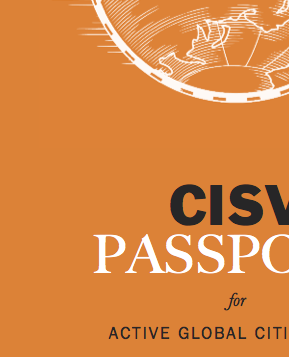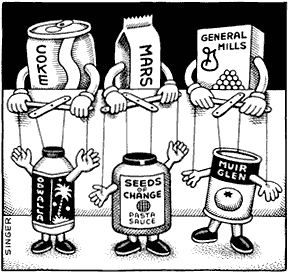Learning could happen everywhere through pop-up education. Much like TED Talks, pop-up education opportunities would be produced by experts, professors, and every individual based on something they know well and can train others on. They would pop up in locations like theaters, YMCAs, elevators, break rooms, restaurants, and wherever there is "wait time" or an equal opportunity for boredom, or when our technology infrastructure realizes an enhancement opportunity--like you might learn about safety while waiting at the DMV.Would that be somthing for the next International Peace Day?
October 2009 Archives
Trying to my get e-mails down to Inbox-Zero, I found an e-mail by Axel/MEX announcing JBpedia 2nd birthday. A bit late, alas, I say Herzlichen Glückwunsch zum Geburtstag!

There has been a lot of talk during the time before JBpedia about getting CISV knowledge online (check out this Devil's proposal), making it available to anybody PLUS allowing anybody to add info. CISV Resources is great, but, hey, it's really only for officially approved documents - so JBpedia is the "open-source"-version of Resources. The great part, is that, from what I can observe, JBpedia wasn't just put there, it is closely monitored and chaperoned, which I think is a great thing!
But this wouldn't be From The Balcony, if I couldn't find anything to criticize so here we go:
If you look ath the most popular pages you ONLY find pages of indiviudal JBs or individual JBers. Was this the point? Shouldn't every JB have a "real" website instead. I guess it's because people are getting used to the Wiki markup, and can't be bothered to get their own website outfitted with a proper CMS. Also the people's pages are nice, but I wonder why people's profiles are so interesting on JBpedia, if there are things like Facebook around. Finally, I don't get why all the programmes have their own pages on Wikipedia - again.
Before I get going to much, let's review the goals anounced on the welcome page:
The idea behind JBPedia is to:Wow. Is there anything JBpedia is not there for? I think, JBpedia would be much better, if it was a little more focused. Here are five suggestions:
facilitate JB development
provide access to documents and information
expose juniors to what others are doing
motivate juniors to get involved locally and internationally
show how IJB works
connect people from different JBs
generate creativity in JBs
share ideas
facilitate the comunication of different JBs
- Try and make JBpedia even more of an encyclopedia, Wikipedia-style: Make sure everything related to CISV/JB is well explained, so that newcomers can find their way around.
- Don't abuse the welcome page as a way to promote things. Instead help people find their way around JBpedia. Offer links to the most useful, popular or up-to-date pages.
- Try and move pages that are in fact "discussions" or "diaries" to another place.
- There is a module that allows a Wiki to attach documents - why not integrate the history of IJB including all documents into JBpedia? It would be even better if all documents were transfered into Wiki pages, because then they'd be searchable.
- JBpedia would be great to collect all kinds of activities such as ice-breakers simulation games and running games. Furthermore there could be a collection of themes. In fact, JBpedia has the potential of being the next (and better) activity database! ARMers apparetnly started something here.
- Luca/ITA writes about IJB in the 80s, and if you read the things they apparently talked about (i.e. creating a CISV airline fueled with Swedish beer?!), I have to say, no wonder, nobody let the juniors have a say in the decision making process in those days. On the other hand, maybe IJB has professionalized itself today to such an extent, that crazy ideas (well, this one is rather silly) wouldn't even show up on the agenda.
- Louise/SWE talks about Obama's Nobel prize: This supports the theory that "Peace Education" is moving back into the center of attention, but also gives a hint, how CISV connects to the "real" world. I've experienced CISV trying to detach from anything that smelled even a tad political. So yes, great: CISVers finally have an opinion on things. Personally, I think we should go even a step further, and have an opinion on the war in Iraq, the upcoming Copenhagen summit, nuclear proliferation and so on. That's our theme! Why is it so little present in our publications, at our meetings. (Even if I really want to, I shall not elaborate on this, because this is meant to be a short post.)
- Hani/LEB elaborates the "Quality vs. Quantity" question, and comes to a different conclusion, than I did in that post. Even though he talks about JBs and I talk about CISV chapter and international, I do think he's making a point overall: You don't need a huge number of people to achieve something great. (Or better: Stop whining, just because you're a small group, and go out and do something instead!)
Good Magazine tackles the topic of branding and marketing for non-profits :
Love it or hate it, you are selling a product: your cause. And while helping change the world is certainly more valuable (and, hopefully, more gratifying) than buying a toaster, you're fighting for the consumers' attention nonetheless, and you're battling for their trust.
This trust is especially important with nonprofits because, unlike with consumer goods, the "buyer" here isn't really getting anything other than a warm fuzzy feeling (and a tax break) in return. For this reason, everything from the literature to the letterhead of your organization needs to play a role in conveying that your cause is professional and worthwhile, and maybe even cool.
This pretty much underlines the fact, that we need to stick to our brand, and consider even more ways of becoming more professional to our possible donors. One way, I've mentioned before, is creating short video clips that explain what we do. Good magazine gives a great example of such a video.
Update: You should also read GOOD's follow up article on this topic, giving good examples of how NGOs present themselves.
Today I uploaded a new picture to the CISV shirts page, and since I haven't received too many new pictures recently, I thought I'll do a little more promotion for the shirts collection website, which by the way still attracts about 10 visitors a day: I added a link (with the latest picture, check the sidebar) here on the FTB page and created a Facebook page.
It's not only me: It seems as if we are increasingly promoting CISV stuff on two levels in the net: On the "real" internet, and inside Facebook. Mosquito tactics is doing it, the CISV Arrows project is there and of course this website is present on both levels.
Obviously the two "universes" have their individual advantages:
"Real Internet":
- Searchable through Google
- Accesible to everybody
- Can have any possible design, layout and technology
Facebook:
- Appears automatically on people's updates
- Very easy to set up.
- Is promoted directly to the people interested
It seems silly to go both ways, because it's more work. Also, discussion threads aren't united at one place. Nevertheless, I guess we'll have to wait until new technology (maybe Google Wave?) arrives, before we can spare one universe.
Further Reading: Internet Usability Guru Jakob Nielsen compares RSS and Social Networks.
(I'm filing this under CISV Hacks because between the lines I am in fact promoting the use of Facebook to promote your CISV project. At least for FTB it is working quite nicely.)
In 2005 a proposal was made to brush up the "corporate identity" of CISV, to create a real brand, that would take a stronger position within the vast market of volunteer organisations. Also to create a more up-to-date version of the CISV logo and a tagline. Today we are most familiar with all this, but what seems normal today is the result of a tense fight between "reformers" and more conservative (better: less-market-oriented minds) in our organization.
 Besides the question of having a brand for CISV or not, it's also about, how much does this brand penetrate through all levels of our organization: How well and how strict this brand is applied to our documents, merchandizing and websites. Quite an effort was made to give detailed instructions on how "CISV looks". (Check out the branding guidelines website for details.)
Besides the question of having a brand for CISV or not, it's also about, how much does this brand penetrate through all levels of our organization: How well and how strict this brand is applied to our documents, merchandizing and websites. Quite an effort was made to give detailed instructions on how "CISV looks". (Check out the branding guidelines website for details.) The "CISV brand" does have a few caveats: The recommended fonts are not free, which makes them expensive to use, if every indiviudal has to pay them. Also, many CISVers oppose a "uniformal" look of CISV, and would rather opt for a "soft brand". Finally, the colors suggested don't offer many nice combinations - something I struggled with when chosing the tones for the AIM 2010 logo.
Just recently Mosquito tactics and also the CISV Passport have been published in a new "look and feel": New fonts, new images, new pictures, etc etc. Personally, I love the "new style", because it seems professional and up-to-date. Now, while Mosquito tactics is a side-project, the CISV Passport is a core document. Creating it with a new design does give the impression, the branding guidelines of 2006 aren't a priority any longer. It even feels like, some people who didn't like the official "look and feel" just came up with something else.
I do think CISV's brand should be constantly reviewed and updated, and I'm not sure any committee is in charge of this ongoing process. Somebody should be, because it's part of being professional in what we do as an international NGO that wants to be taken seriously.
You have been working hard to make the world a better place, and we've noticed. We want to show our love for your work by offering your organization a chance to gain the attention it deserves.
Through Free Range's 2009 Youtopia Grant, we are offering up to $15,000 worth of design and/or strategic communications services from our menu of core offerings: strategy consulting, identity design, web design, print design, and online movies. We will be awarding two grants--one to a socially responsible business and the other to a non-profit working for social change.
CISV fundraisers unite and get a proposal ready before October 31st!
Details are here.
In CISV, sometimes I've often felt frustrated with the depth of discussions on popular themes, such as genetic engineering or nuclear energy. I felt that with the lack of knowledge activities dealing with these topics rarely provided me with much usefulness, and I wonder whether CISV is the right setting to learn about these things. I've had way better experiences withe themes dealing with personal views, morals, ethics, cultural issues. Areas with little scientific background, large cultural and interpersonal differences, and absolutely no clear right or wrong.
Nevertheless, I still believe that within CISV we should be able to deal with more "political" topics, if you preserve a "personal connection" and provide with background literature. So with this post I'm making a first attempt to suggest themes for CISV activities, that fits these criterias pretty well. What you will find below are objectives, a brainstorm of ideas to develop activities, and a few links to more information.

Organic Food
I've chosen "Organic Food", because I think it's an ideal theme for CISV, yet rarely discussed, and one of my personal favourites*. With a bit of adaption, this activity could also work for village kids, but I guess it's mainly for 14+.
Possible objectives:
- To generate a better understanding of the different variants of "Organic Food".
- To exchange personal views on what choices are made concerning food consumption.
- To discuss the concept of "voting with a trolly", and how much impact it can have.

Possible activities:
- Collect pictures or original items from a local supermarket and have participants list things into following categories: "I usualy buy...", "I rarely buy...", "I would never buy". Alternative: Visit a local supermarket in pairs and have them explain each other food they buy, or won't ever buy (make a blacklist!).
- Ask people to sort their priorities when chosing food by "flavour", "health", "price", "moral", "ecological impact".
- Have participants brainstorm, what they consider "organic"-food.
- Split into smaller groups, provide with material and have them present in a creative way the following concepts: Fair trade, "Buy Local", Genetic engineered food, Veganism.
- Brainstorm why these concepts may have their downsides.
- Have an open discussion round on whether "voting with a trolly" works
- Ask participants to look at their shopping list again, and ask whether they would through out certain items, or even add others.

Material
- Organic Food at Wikipedia: This article was marked to be checked for "neutrality" - which gives an impression, how political this topic is.
- Local purchasing, explained at Wikipedia
- What is local - a website explaining the difference between local and sustainable
- The Buy local myth - an excerpt from the NYT
- Voting with a trolly - The Economist devoted a whole section to the topic of "food politics in Dec 2006, unfortunately you can only read the first paragraphs without paying - but it still gives a good impression.
- Veganism - a long and good introduction by Wikipedia, unfortunately a bit uncritical.
- Another lengthy article on Veganism, includuding criticism regarding health and ethics.

The material list is far from complete, and I apologize for all those Wikipedia links - if you can provide more and better stuff, please post them in the comments section.
*I like the topic, not because I think everybody should buy "organic", but because it's fascinating how easily people are tricked into thinking they are buying something "good". In my eyes there's some "Aufklärungsbedarf" - need for education!
When I started the FTB-project, some people thought I was insane to start a blog about CISV. With the ton of positive feedback I've got so far, apparently it is well received. Good.
But the strongest motivator for me going on, are your comments. So, please, if you read a post - and have any kind of feeling or opinion - good or bad - please don't hesitate to leave a comment (if possible on the website, but on Facebook is just as fine). Even if it's just a single word or a sentence. I've received feedback on some articles weeks later, through e-mail or face-to-face contact, and never realized how many people appreciated (or even disliked) what I said.
Thanks.
